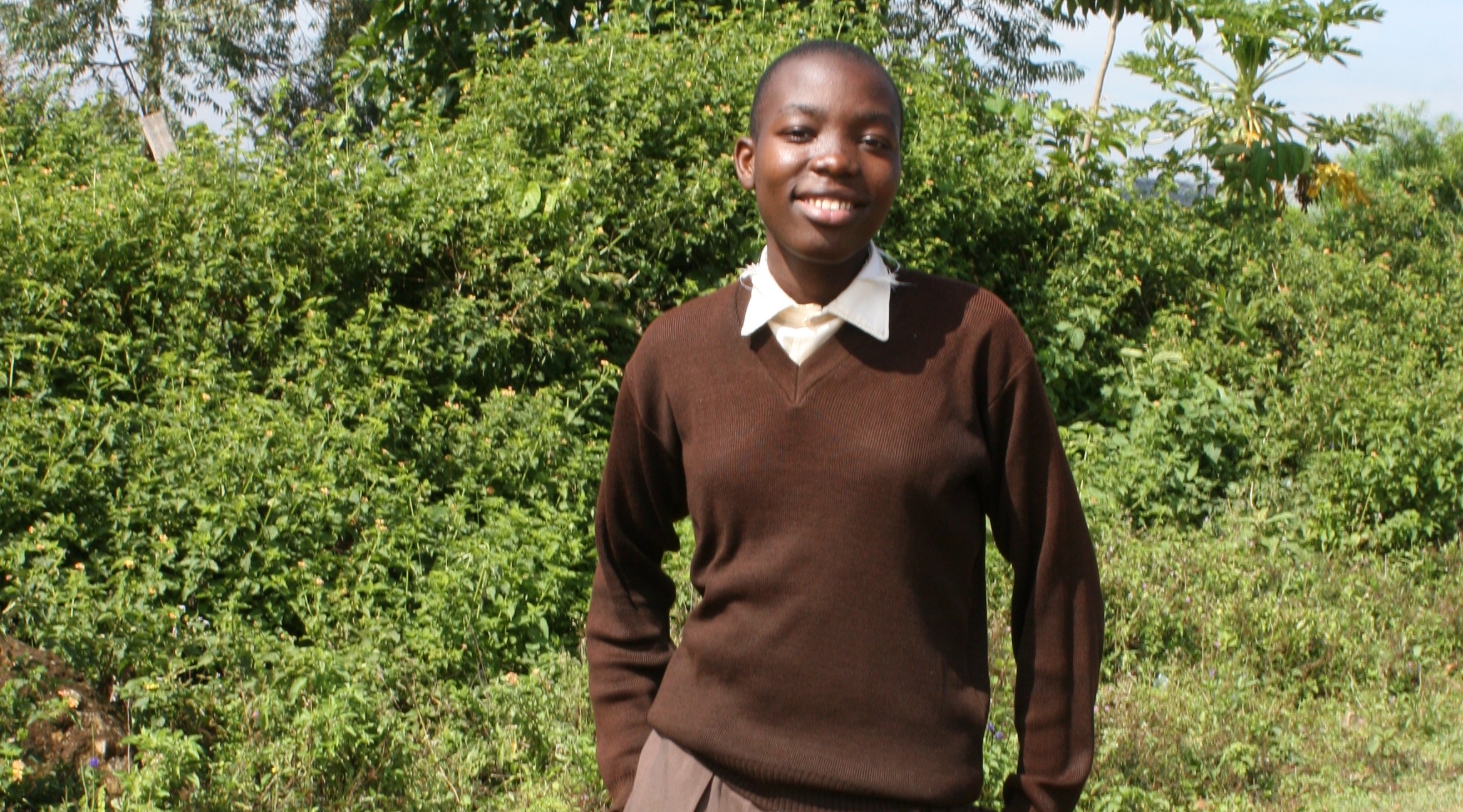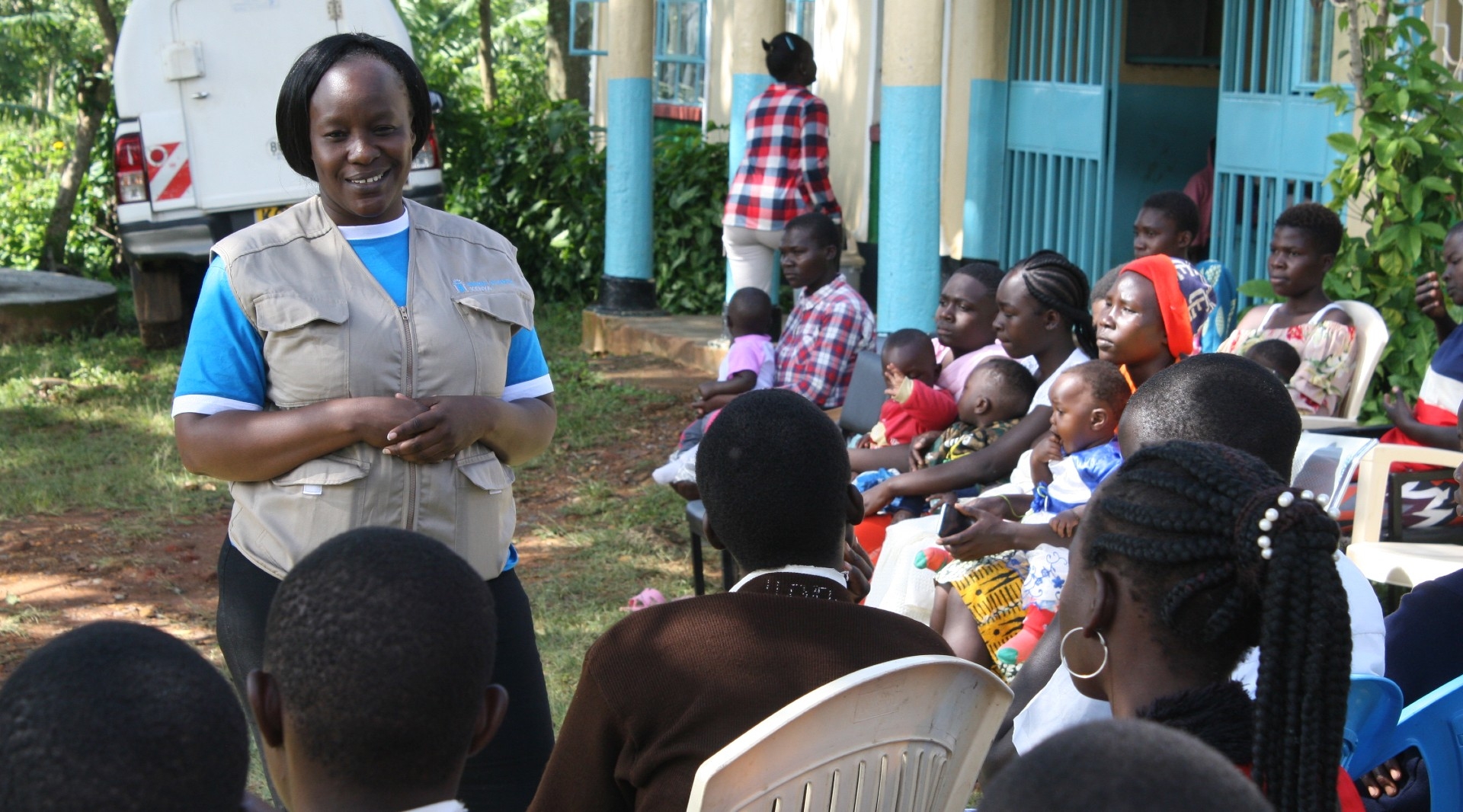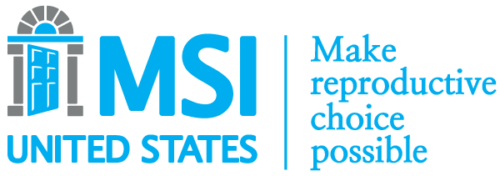The town of Kisumu sits on the edge of Lake Victoria in western Kenya. It is the third largest city in Kenya and famous for being the birthplace of President Barack Obama’s father.
MSI Reproductive Choices was there to shoot a video with Empowered, a video company that produces educational video content for PBS. Empowered had reached out to MSI about working together on a piece for their series on women’s empowerment. The video would center on the impact of access to contraception and reproductive choice on girls’ education and it would be hosted by the screen actress Meg Ryan.
After a few short months of planning, we were bumping along the road out of Kisumu with the production crew and members of the MSI Kenya outreach team. Gabriel, our driver, navigated us through the riot of tuk-tuks—three wheeled motorized rickshaws—and boda-bodas—the motorbikes that are ubiquitous in Kenya. The trip took us north through tiny villages and farmland. We saw cows and goats grazing by the side of the road and crossed the equator on our way to the Lihanda Health Center.
Lihanda Health Center is a public health facility supported by non-governmental organizations (NGOs) like MSI, several miles off the paved road in farm country. At the center, they provide basic healthcare services including pre-natal care, standard childhood vaccinations and treatment for malaria. MSI Kenya had arranged an outreach event there for young women to come and learn about their options for family planning. We planned to interview the women and MSI team members for the video.
It was a busy day at Lihanda. In addition to the contraceptive outreach activities, Debra Oyugi, the Regional Marketing Coordinator with MSI Kenya had arranged for a group of adolescent school girls to come for a sexual reproductive health education session. Teen pregnancy is on the rise in the area, and communities and schools have organized health clubs where girls can learn about contraception and how to prevent sexually transmitted infections and HIV/AIDS. In every one of the 37 countries where MSI works, they partner with the community and other organizations to achieve their goals of ending unsafe abortion and ensuring that everyone who wants contraception can access it. Working together is critical in reaching adolescent girls to deliver reproductive choice.
The girls arrived at Lihanda on foot and took seats on the plastic chairs arranged in the front yard of the center. They were quiet and shy to start, not sure what to expect. But soon, Debra had them laughing and raising their hands with questions.

Anne, a student, visits the Lihanda health center to learn about contraception. (MSI)
We met Anne, a student in her fourth and final year of secondary school. She had come to Lihanda to learn how to prevent pregnancy. She was hoping to continue on to university and didn’t want an unintended pregnancy to get in the way of achieving her dream of working with a charitable organization that helps others. One girl told us that “abstinence only happens during school hours, once out of school, girls engage in unprotected sex.”
While the videographers were busy making their video, the outreach team was busy providing services, mostly contraceptive arm implants, to more than 50 women. We chatted with the women to find out why they’d made the long journey to the center that day. Young mothers talked about wanting to avoid future pregnancies because they had all the children they could support and educate. They spoke of wanting to provide their children with more opportunities.
Over and over, we heard stories of young girls who had been forced from school because of pregnancy, and women who were struggling to care for the children they already had. We learned that up to 4 million girls across sub-Saharan Africa are forced to leave school every year because of unintended pregnancies. Everyone we spoke with had a story to tell about the devastating impact of unplanned pregnancy. We were told that there were few options for the services MSI was providing and even fewer services available for the adoption of unwanted babies, pushing children and their mothers into a cycle of poverty that is almost impossible to escape.
It costs so little to provide a woman with the contraception that will allow her to continue on a different path, a path she chooses, rather than one chosen for her. For just $8 MSI can provide a year of contraception, a year of freedom from the worry of getting pregnant unexpectedly and a chance at a life she controls. $8 for another year of education. $8 for a year to recover from childbirth and provide care to an infant.
We met so many young mothers that day. Women, who just like mothers everywhere, want the best for their children. We watched the group of teenage schoolgirls, laughing and teasing one another, full of hopes and dreams. We talked about how much they were like young girls we know in the United States, We came away changed by this experience, resolved to do more so that these women and girls and the millions of others who want to take charge of their bodies and lives have that choice.
For more information about MSI Reproductive Choices, visit msiunitedstates.org.
MSI United States is a US 501(c)(3) non-profit organization (Tax ID: 54-1901882) that supports MSI Reproductive Choices, an international non-profit formerly known as Marie Stopes International.

